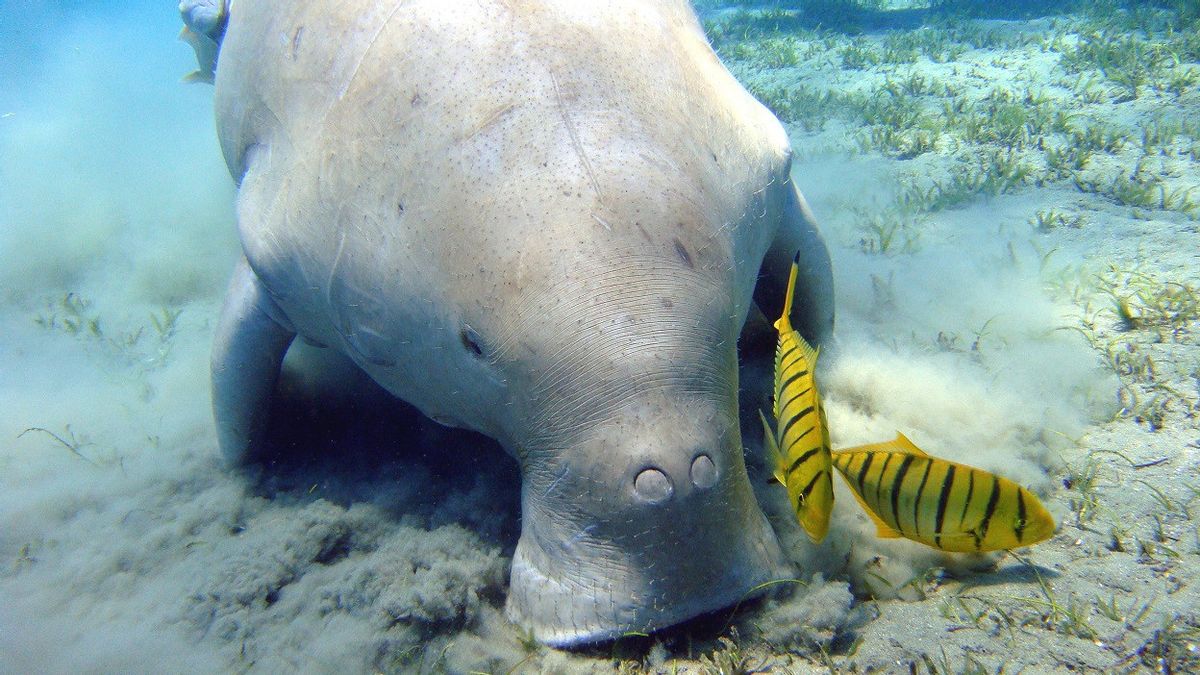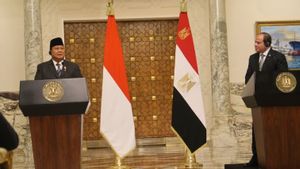JAKARTA - Those of you who live in the Asian Pacific region are certainly familiar with this one animal. Dugongs aka Sea Cows are herbivorous marine mammals described by WWF as 'plump' in appearance, traveling around using their dolphin-like tails, living on seagrass growing from the shallow seabed.
People often confuse them with their cousins, the manatees who are just as flashy. Unlike their close relatives, dugongs inhabit the waters of the eastern sea rather than freshwater lakes and are slightly smaller in size.
Seen far from being a conservation problem, Dugong is in fact experiencing a threat of extinction. The International Union for Conservation of Nature's (IUCN) Red List of Threatened Species classifies them as “vulnerable”.
This is said to be species-variable because research suggests some mammal populations may have increased to become "critically endangered".
We understand that manatees are threatened by warming water temperatures, which makes it easier to assess their status as vulnerable animals. Imagining their cousin's future was a little baffling.
Dugongs actually help the climate by protecting their food source, the seagrass beds, as they are known to be great means of storing blue carbon.
The problem lies in fishing and human activities, which have endangered the grasslands and caused the number of dugongs to plummet since the 1970s. Their shame and liking for muddy water made them very difficult to identify.

Qatar, as one of the countries with a lot of Dugong waters, is trying to take steps to conserve these animals to keep them safe and not experience extinction.
In this upcoming summer exhibition titled 'Seagrass Tales, Dugongs Trails' at the National Museum, Qatar wants to educate people about animal ancestry, potential threats, and benefits to the environment. The museum later declared the animal as its mascot.
The Dugong's relationship with the country is very special - they were first known to inhabit the Arabian Gulf more than 7,500 years ago. It is rare for these creatures to travel in large groups, but their numbers are so numerous that the largest sighting of more than 800 of them was found in Qatar last year.
The country's environment ministry has spearheaded several initiatives to raise awareness about the role of animals in the nation's marine life, with funding for research that will inform conservation experts about how to better protect them.
"Dugongs play an important role in marine ecosystems, they contribute to maintaining healthy seagrass beds which help ensure a vegetative balance for a healthy ecosystem," said Ismail Al-Shaikh, Superintendent of Technical Research who led the research, as reported by Euronews.
"With the species currently classified as vulnerable, we hope our research will continue to support the growth of these peaceful animal populations so that they can continue to breed in Qatar and beyond", he continued.
Apart from Qatar, the Philippines has also introduced a law to protect dugongs under a conservation law that provides harsh penalties for fishermen who harm them. This is the first marine protection in this kind of country.
The national situation of the country has become so bad that dugongs can only survive in specially protected areas where they are protected from fishing vessel propellers and marine waste. Technology that allows researchers to map their appearance directly from the ocean was also implemented in 2016.
The English, Chinese, Japanese, Arabic, and French versions are automatically generated by the AI. So there may still be inaccuracies in translating, please always see Indonesian as our main language. (system supported by DigitalSiber.id)













